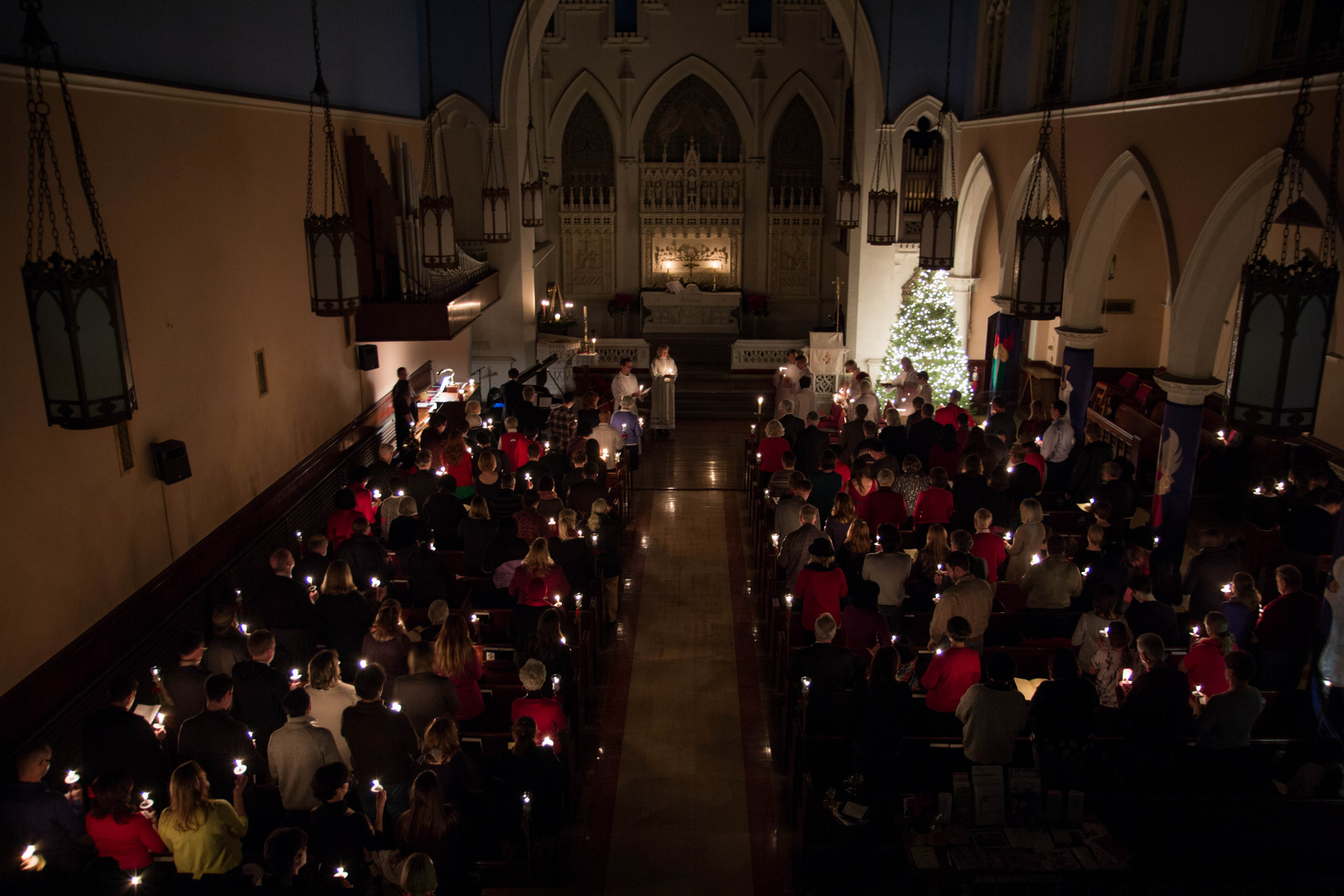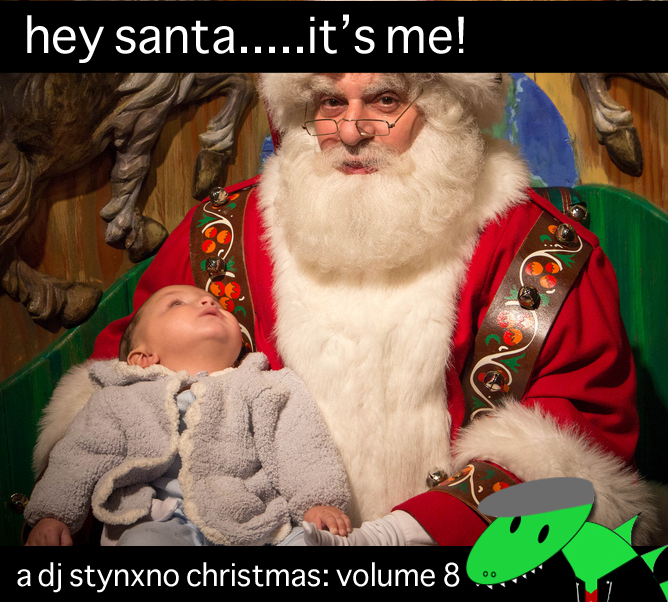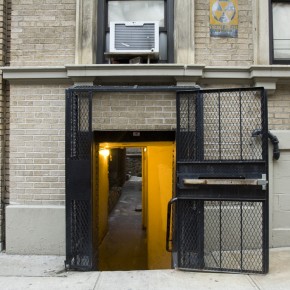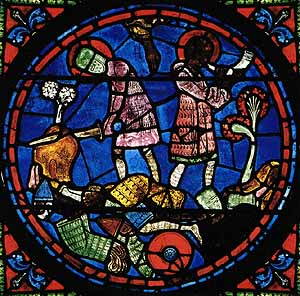Delievered at Advent Lutheran Church. Lessons and Carols. Isaiah 9:2-7; Luke 1:26-33,38; Luke 2:1-14; Luke 21-36; Matthew 2:1-11; John 1:1-14
+++
So ‚Äì here we are ‚Äì in an intermission of sorts ‚Äì halfway through our lessons and our carols. Each time we’ve encountered the words of God’s story ‚Äì words that were read and lovingly spoken out loud – and we responded in song. We started with Isaiah, and we sang; we then heard Gabriel’s greeting with Mary, and we sang; we heard of the census and Jesus’s birth; and we sang. And now we just heard of Jesus’s circumcision, his naming, and presentation, of Simeon and Anna, and the Temple ‚Äì and then there’s me ‚Äì before the song; before we all gather together, join our voices , and sing ‚Äì there’s this ‚Ķ this intermission ‚Äì but unlike a Broadway show ‚Äì the curtain is still up ‚Äì and….and there you all are ‚Äì staring at me ‚Äì in this moment before the song.
It’s a strange space, really, to be right here, right now ‚Äì and ‚Äì it’s a little intimidating. I wonder if it’s like how Mary felt ‚Äì right when the angel appeared ‚Äì before Gabriel spoke; before she heard the words of promise; before she sung her own song ‚Äì a song we heard during Advent. Or when Zechariah heard of the promise that was coming in John ‚Äì right before he disagreed with the words of the angel ‚Äì in that moment before the action; before something happened; before the words come. Or maybe this is kinda like how Jesus looks back on his life because ‚Äì the Christmas story, the story of Jesus’ youth ‚Äì it’s a story where Jesus doesn’t actually do anything. Sure, Luke has that story about Jesus running away to the Temple when he’s twelve ‚Äì but, other than that – we hear a lot about what happens either because of Jesus or what happens to Jesus. He’s born ‚Äì swaddled ‚Äì circumcised ‚Äì named ‚Äì carried ‚Äì put into the arms of people that he doesn’t know ‚Äì he’s blessed, prayed over, but there’s nothing about his cooing, crying, laughter ‚Äì or any of the baby things he did. Before his ministry ‚Äì his early life, to us, is a mystery ‚Äì a moment before his voice, before his action, before his obedience ‚Äì before the Cross ‚Äì before his song.
I grew up in Colorado ‚Äì and my high school, Arapahoe High School ‚Äì Go Warriors! – had a relationship with the Arapho tribe in Wyoming. Each year, the son of the chief would come down from Wyoming and give a scholarship to a member of the graduating class. So this son would stand up on the podium in our football stadium ‚Äì with his back to all our parents and guests, facing 500 suburban kids in rented gowns and hats ‚Äì and he just waited. Everyone’s eyes were fixated on him and he waited. And waited. In the space between his introduction and his speech ‚Äì in that moment before his song ‚Äì there’s this….energy ‚Äì the kind of energy that only silence can bring ‚Äì an energy that fills the air. Even nervous laughter, or the wisecracks from my friend, or a distant car honk couldn’t interrupt it. Nothing could cause that space to end ‚Äì nothing but his words ‚Äì his spoken words. And we all sat there ‚Äì and waited with him ‚Äì until he spoke.
I learned later that what finally caused him to close that open space was an eagle. Next to the football field, behind our backs, was a small creek with elms, oaks, and Aspens. And as he looked out over us ‚Äì after a few minutes ‚Äì he saw this eagle fly out ‚Äì and then he knew that it was time to speak. It’s funny, because I don’t actually remember anything that he said. But I do remember that pause.
The Christmas story ‚Äì as we see it expressed in our lessons today ‚Äì in the voice of Luke, the magi of Matthew, and the opening lines of John ‚Äì all were written decades after Jesus’s death and resurrection. Scholars will argue until the end of the time, how these authors put these writings together ‚Äì what their sources were, how accurate they were, the communities they wrote in, what their motivation were ‚Äì what was it that filled the space before their songs. And we, gathered here, will spend our time reading these stories ‚Äì God’s stories ‚Äì and spend our time with these stories in our own pauses ‚Äì in our own spaces before our completed songs. Because that’s the amazing thing about Christmas ‚Äì and why Christmas isn’t just one day long ‚Äì because God chose to be born ‚Äì to live ‚Äì in that pause before the song. So much of Jesus’ story ‚Äì his years as a child ‚Äì his years before his ministry ‚Äì it is a mystery. It’s unknown. And that unknown space ‚Äì it’s a space that wants to be desperately filled. Even in the early 2nd century ‚Äì people wanted that story filled. They wanted to hear about how God lived life on earth ‚Äì what wonders he did ‚Äì what powers Jesus showed ‚Äì what fame was won. They wanted to see the greatness of God living ‚Äì conquering ‚Äì overpowering ‚Äì the space where we live our lives – before the healing ‚Äì before the travels ‚Äì before the loaves and fishes ‚Äì before the eating with outsiders ‚Äì before…before the Passion and the Cross.
But the space before that ‚Äì that space before Jesus’ song is very large and very quiet. The space between Christmas and Easter ‚Äì it is large. We don’t know about Jesus’ relationships. We don’t know his education. We don’t know if he spoke Greek, if he spoke Hebrew, if he had a favorite toy, a favorite friend, or if he ever got turned down when he asked someone out. We don’t know his hurts ‚Äì his joys ‚Äì his frustrations. We have this very large pause ‚Äì but I find it to be a very grateful pause ‚Äì because it is not static ‚Äì it’s active ‚Äì dynamic ‚Äì a space big enough to hold all our fears ‚Äì joys – loves ‚Äì loss ‚Äì and this space ‚Äì this space is held ‚Äì not by the baby Jesus, or the child Jesus, or the infant Jesus ‚Äì but the risen Jesus, the resurrected Jesus – the promised Jesus ‚Äì the Jesus who lived a human life ‚Äì a life filled with holes ‚Äì and secrets ‚Äì and stories that did not come down to us ‚Äì but stories that are our stories ‚Äì our true stories. And Jesus holds that space wide open ‚Äì because it is in in that space where God builds a space for us. The Christmas Story isn’t a story about us making space for God ‚Äì of letting go and letting God ‚Äì but is a story of God being God whether we wanted it or not; of God being big enough to have a space for all of us – and all of who we are ‚Äì not as we wish we were ‚Äì but as we truly are ‚Äì right now. That space ‚Äì that unknown space after Jesus’ birth and before his baptism ‚Äì is our space; it’s our pause; it’s our moment before our completed song ‚Äì and it is in that space where our song is joined with Jesus’ song. Emmanuel ‚Äì God-with-us, God-for-us, God-with-the-space-for-all-of-us ‚Äì that is the Christmas song. That is our song. And that is our daily gift ‚Äì a daily gift that, unlike Christmas Day, or 2012, or even the twelve days of Christmas ‚Äì does not end.
Amen.



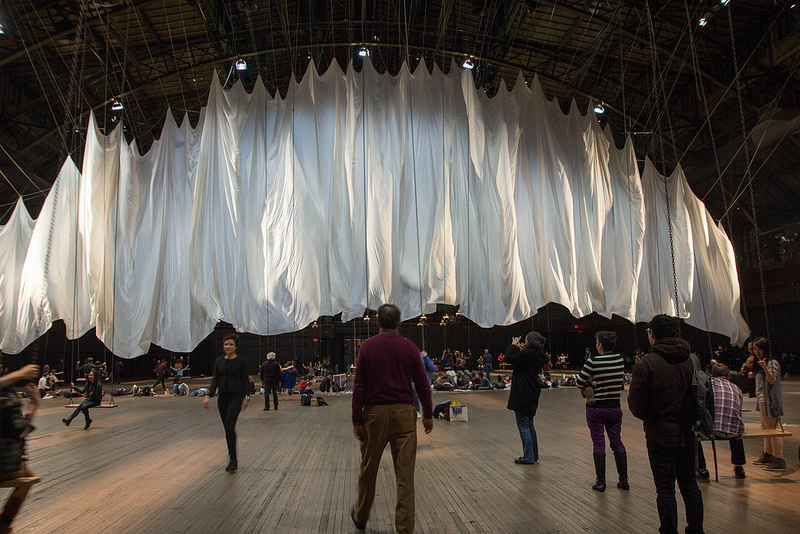

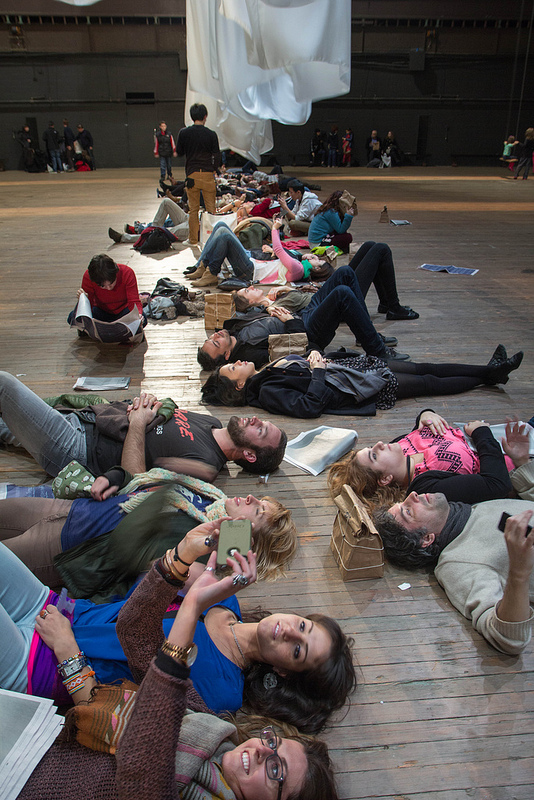
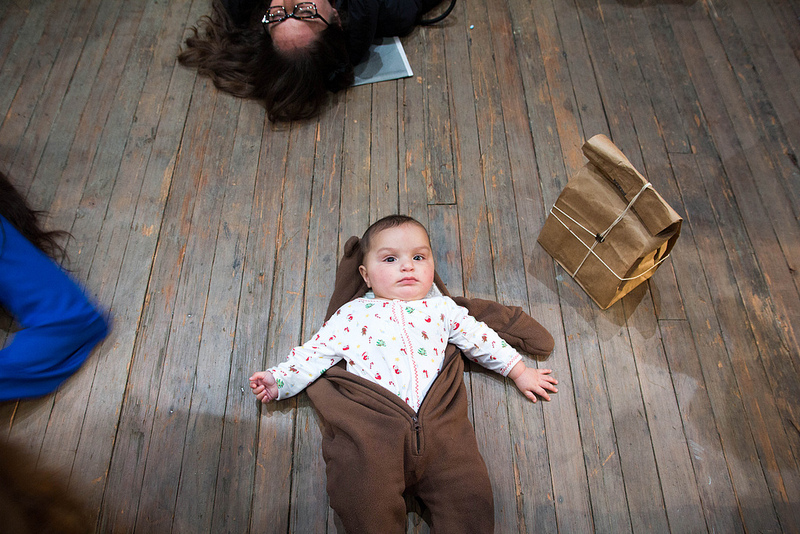
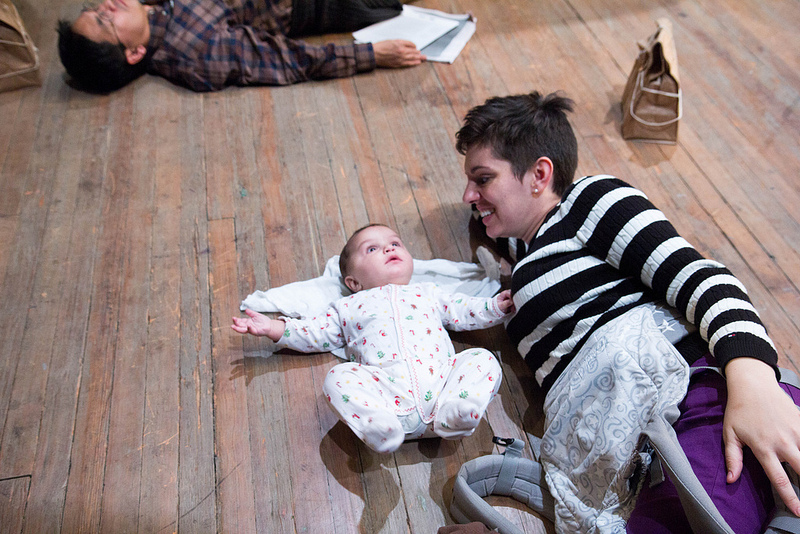
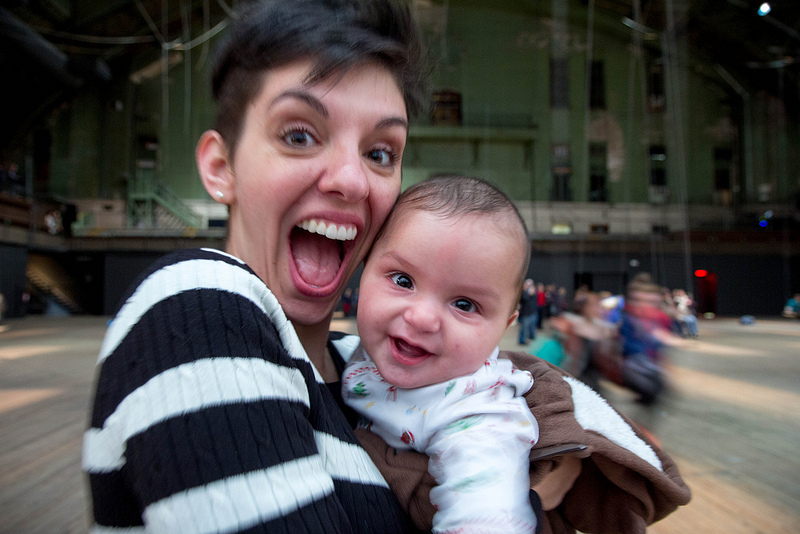
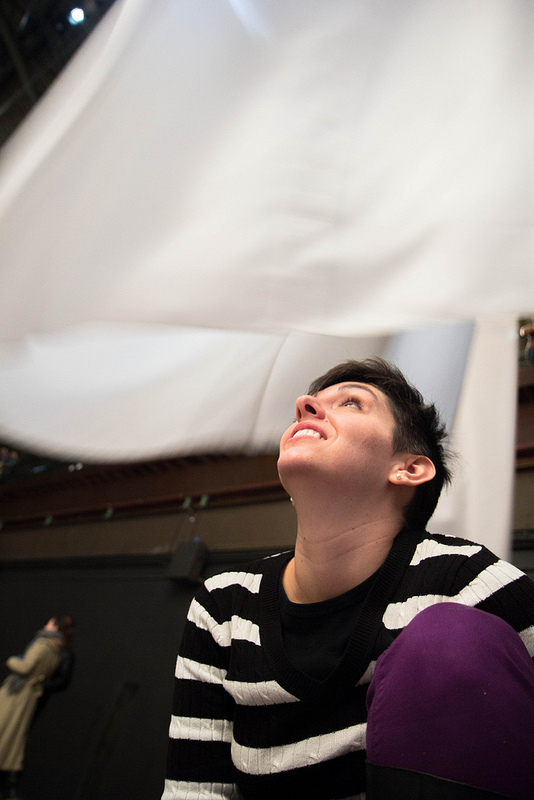
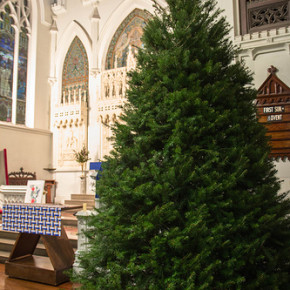 Delievered at Advent Lutheran Church, Manhattan; December 24, 2012; 4 pm Family Service.
Delievered at Advent Lutheran Church, Manhattan; December 24, 2012; 4 pm Family Service.
